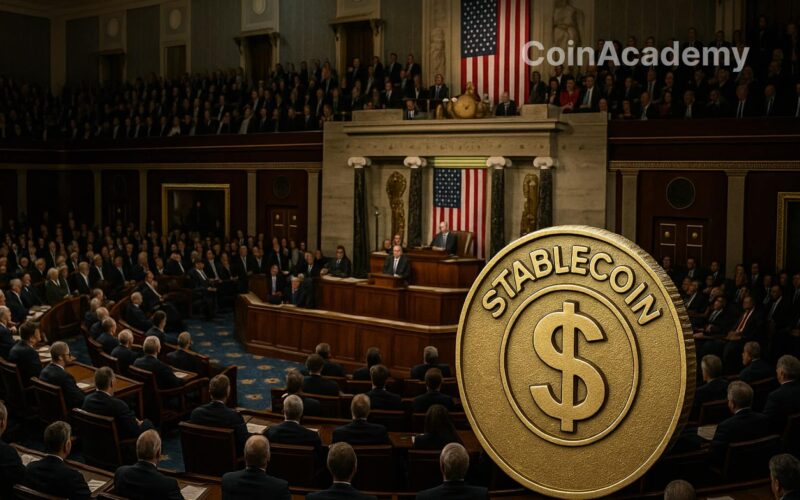Adopted just a few months ago, the GENIUS Act was hailed as a major legislative breakthrough to regulate stablecoins in the United States. This text, the result of years of debate, finally entrusted federal regulators with oversight of this market estimated at over $150 billion. But already, Congress is considering amending it.
Representative French Hill, a central figure in crypto regulation in the House, believes that the text needs to be strengthened. At an event in Washington this week, he pointed out that the Clarity Act, adopted by the House to structure the crypto market broadly, includes several adjustments to the GENIUS Act.
GENIUS Act: a victory overtaken too soon?
Amendments proposed by the House
These modifications, integrated into section 512 of the text, aim to address what lawmakers see as loopholes:
- Increased accountability of executives: CEOs and CFOs of issuers must provide reliable financial data, verified annually by an audit firm.
- Exclusion of non-financial actors: explicit prohibition for companies outside the banking and financial sector to engage in issuing stablecoins.
- Guarantee for individuals: affirmed right for every American citizen to keep their assets in a hardware or software wallet, and to carry out peer-to-peer transactions.
We simply thought these were ways to make GENIUS stronger and better, based on the work we have done in the House.
“These additions make the GENIUS Act stronger and more credible“, emphasized French Hill.
The Senate takes the lead
In the Senate, the issue is now led by Cynthia Lummis, a fervent supporter of cryptos and chair of the subcommittee on digital assets. She confirmed her intention to take into account the work of the House: “I think there will be language that will modify the GENIUS Act.”
Sentors now aim to adopt their own bill on the structure of the crypto market by the end of the year. The goal: to merge the efforts of both chambers and produce a coherent framework capable of regulating both stablecoins and all digital markets.
A political race against the clock
The timeline is tight. While the House has already passed its version with broad bipartisan support (308 votes to 122), some senators remain cautious, like John Kennedy, a Republican from Louisiana, who doubts the maturity of the text.
Nevertheless, French Hill remains optimistic: “I think they can get there“, he said, highlighting the cooperation between Republicans and Democrats on the Senate banking committee.
If these adjustments go through, the consequences would be immediate for the ecosystem:
- Stablecoin issuers will need to strengthen their governance and audits.
- Tech giants will definitively be kept out of this market.
- American users will have the legal guarantee to maintain control over their wallets and transactions.




